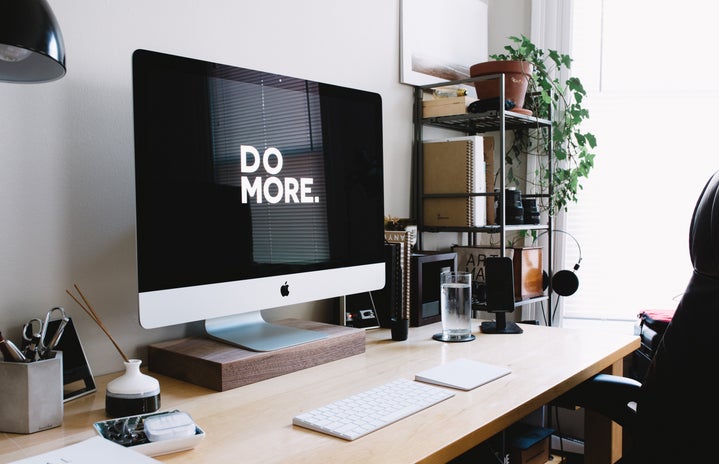As I started talking to those around me about current events, I realized that the youth is quite uninformed and tuned out from the news. Even worse is the fact that many refuse to recognize their lack of awareness. They spend hours on social media, scroll past a couple of headlines, and don’t look further. When you ask them if they have looked into a topic they are sharing an opinion on, it’s quite common to get a defensive reaction.
The key to moving forward is more honesty. Young people should admit, without feeling ashamed, when they simply do not know and want to learn more about a topic or event. If you’re personally trying to be more informed, here are some tips to get started.
- Step away from your one beloved news source
-
Many people claim that “the media” is biased and cannot be trusted. Time and time again, I am brought back to a chart I saw in one of my classes mapping out where news organizations stand on the political spectrum. It is so important to understand that yes, news commentators can provide their opinions when discussing events. This happens, and many times it is taken as fact.
This makes it so hard for journalists who are trying to give unbiased, factual reports to have their work appreciated. My advice to you is to get multiple accounts of what happened. Do your research. See what different outlets are saying.
- Download news apps, follow their social media accounts, and turn on notifications
-
Since we’re all seemingly on our phones every second of every day, let’s take advantage of that. The easiest way is to engage with news using digital platforms. Subscribe to news outlets and download their apps. They have very user-friendly ePapers that allows you access to every story in each daily paper. You can click on them and read each one like you would any other news article you find online. I subscribe to The Boston Globe because I am from the Boston-area and love their app! The New York Times is another great option, as the newspaper made its articles about the pandemic free (with no paywall), in an effort to have public health information accessible to all.
- Have conversations and practice empathy
-
I cannot tell you how many times friends have told me that they try to have conversations about politics or social justice issues and they are shut down by someone who refuses to acknowledge another opinion. One of the most important skills any of us can develop is empathy. Empathy means putting yourself in someone else’s position and trying to understand what they might be going through. Though we can never fully know what it is like to live someone else’s place, we can try to listen and acknowledge their voices. A great example of this is amplifying Black voices as support for the Black Lives Matter Movement. Only those who live their lives in fear due to systemic racism can tell us how it really feels.
It is so important to engage in tough conversations. We need to be able to accept other ideas and listen to one another. So, keep going and keeping having tough conversations. Push people who don’t want to talk and make it more normal. We have to be able to talk about these things if we ever want to see change.
- Read, read, and read some more!
-
One thing a lot of my professors have told me was that the best writers also read. A LOT. During this COVID-19 pandemic especially, I have found myself reading (and listening, thanks Audible) more than ever. If you want to know more about a topic, learn about it. Look into authors who have written memoirs on the topic. This is a great way to understand someone else’s perspective. Some books I could recommend right now are Just Mercy by Bryan Stevenson, a lawyer’s experience with inequality in the justice system, and Untamed by Glennon Doyle, a story of reliance and acceptance.
As a journalism major, my classes have taught me that I have one goal: to give a voice to the voiceless and present my readers with the truth so they can make educated decisions. Journalists work hard. They want the public to be informed so they can digest information and make their own conclusions. Let them do their work, and stay informed.
Want to keep up with HCBU? Make sure to like us on Facebook, follow us on Instagram, check out our Pinterest board, and read our latest Tweets!


